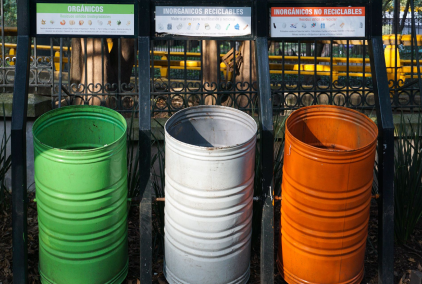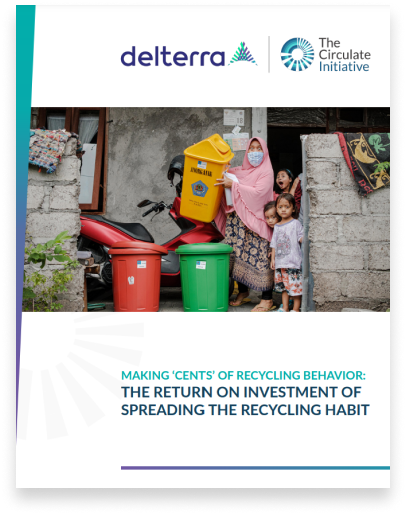

Making “Cents” of Recycling Behavior: The Return on Investment of Spreading the Recycling Habit
Recycling behavior has an outsized influence on the economics of recycling. Around 80% of post-consumer waste could be recycled or composted, but when communities don’t separate their waste at the source, most of these materials remain out of reach for the recycling industry. With the global recycling rate languishing at 16%, there is a pervasive supply shortage of recyclables, putting corporate recycling commitments increasingly at risk even as the urgency around combating waste pollution grows. Activating more communities to play their part is more important than ever.
The report analyzes Delterra’s projects in three distinctly different recycling environments in emerging markets – an informal settlement in Buenos Aires, a set of urban districts in Bali, and a mid-sized Argentinian city – and shows that investing in behavior change pays for itself in recycling outcomes. The findings affirm how recycling behavior isn’t a nice-to-have; instead, it’s key to making the economics of recycling work.
Key takeaways from this report include:
- Promoting recycling behavior can pay back quickly, especially when prices reflect environmental impacts. It takes Delterra’s projects five years to break even on behavior change based on recyclables sales alone, and only two to four years with landfill cost savings and environmental credits included. Putting a price on the environmental benefits of recycling matters.
- Behavior change costs less than technology-based alternatives for boosting recycling outcomes. Promoting recycling behavior cost Delterra’s projects US$ 50-150 for every additional tonne of recyclables per year, compared to waste-sorting technology that would have cost US$ 200-700 per tonne to achieve a similar effect.
- Deeper investment in community engagement is likely needed to reach high recycling rates. The Delterra projects that invest more per household achieve higher participation rates – which we need to meet the world’s demand for recyclables.

Read Report
*By clicking the "Download" button, you are agreeing to The Circulate Initiative’s Terms of Use and Privacy Policy.